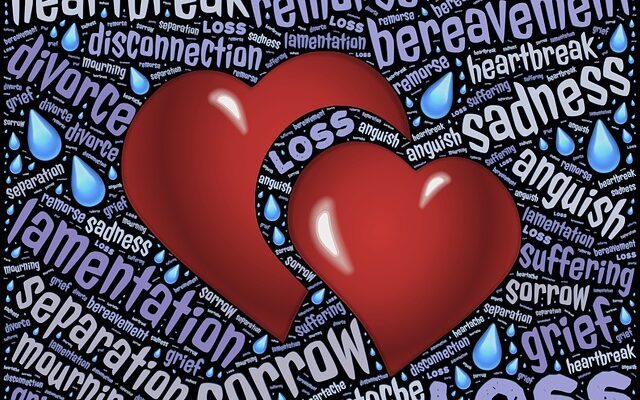Anger Management: How to Conquer Intense Anger before it Conquers You

Anger is a useful emotion that every human being inevitably experiences when upset, threatened or treated unfairly. The benefits of anger as an emotion kick in when it is well-managed as this can result in positive changes in a person’s life. Nonetheless, anger can also be a dangerous and destructive emotion when poorly managed.
Emotional control refers to a person’s capacity to identify, manage and respond to emotions in a socially acceptable manner. Notably, emotional control has more to do with responding rather than reacting to emotions. It involves an intentional effort by an individual to control the generation, experience and expression of impulses and disruptive feelings to prevent negative consequences.
One of the main areas where emotional control comes in handy is anger management. Uncontrolled anger can result in physical fights, self-harm, arguments, assault and physical abuse among other things. In this article, we will explore anger in relation to its characteristics and common triggers, consequences of uncontrolled anger, and effective strategies for anger management.
I. Understanding Anger
A. Definition and Characteristics of Anger
Anger refers to an intense feeling of antagonism towards someone or something that has wronged you. It is a natural and healthy response to threat and it is characterised by irritation, stress and frustration. However, it becomes an issue when its intensity is uncontrollable, excessively displayed and gets in the way of daily functions or the way one interacts with others.
The human body experiences different physiological and biological changes when anger kicks in. Everyone does not experience rage the same way but here are some of the physiological characteristics of anger.
- Excessive pacing
- Raising voices
- Jaw clenching
- Clenching fists
- Rapid heartbeats
- Scowling or frowning
- Excessive sweating
- Physical trembling
Biological characteristics during anger episodes;
- Raised high blood pressure
- Increased muscle tension
- Increased energy levels
- Hormonal spikes including noradrenaline and adrenaline
- Increased body temperature
B. Common Anger Triggers
Anger triggers refer to sensitive emotional areas that involuntarily respond or get stirred up by specific topics, actions, people or situations. Everybody has emotional triggers and they are different for everyone because they are determined by one’s life experiences. Your life experiences train your brain how to react to situations. Anger triggers can originate from;
- Childhood and upbringing
- Health and well-being
- Past experiences
- Current situations
Some of the common anger triggers include;
- People joking about critical issues
- Nosy/rude questions
- Noise
- Waiting for longer than expected
- Dishonesty
- Bad working conditions
- Being wrongly accused
- Rumours and gossips
Hopefully, you can notice that anger is a secondary emotion and never the very thing that you are dealing with. It is what you experience as a result of disappointment or frustration. Therefore, whenever you feel angry, ask yourself why. The answer to that question is what you should address to change the situation.
Notably, anger triggers originate from emotional pain. Therefore, the strategy for anger management is not the same for everyone because the trigger determines the best way to start dealing with the situation.
II. Consequences of Uncontrolled Anger
A. Impacts on Physical Health
When not well managed, anger can take a toll on your physical health. Some of the ways it can affect you physically include;
-
Cardiovascular Issues

Image from eatthis.com
According to Dr Raychelle Lohmann, prolonged anger can exert a lot of pressure on the circulatory system, resulting in a high heart rate, constricted blood vessels and high blood pressure. If this goes on for a long time, the extreme stress on the heart muscles can accelerate the chances of suffering from strokes, heart diseases and heart attacks.
-
Muscle Pain and Tension
The muscles of the body become tense when someone is angry and in the long run, if this is not resolved can result in nociplastic pain, according to a study by three healthcare specialists in the US.
Nociplastic pain is persistent, unspecified pain that you can feel on your shoulders and lower back. Fibromyalgia, according to research, is also a long-lasting condition that is also related to prolonged intense anger.
It is a condition that is characterised by tenderness or pain that you can experience throughout your body and can cause poor sleep quality and fatigue. When this anger is unresolved and extends for a long period, the muscle tension results in migraines, muscle pain, temporomandibular joint disorders and headaches.
-
Stress
Adrenaline and cortisol are some of the stress hormones released by the body when you are angry. Once anger goes on for a long time or you go through frequent anger episodes, your body deals with continuously elevated stress levels, affecting normal body functions like sleep and rest.
-
Poor Sleep Quality

Image from creativemarket.com
When you are angry, it becomes hard to enjoy a peaceful, restful sleep. In such a case, falling asleep or staying asleep is a challenge and this gets in the way of your sleep routine. If this goes on for a long time due to unresolved anger, it can negatively affect your productivity at work, studies and physical health.
-
Premature Aging
According to research, anger-induced biological ageing is a real thing that is mainly triggered by chronic stress that results from prolonged anger. Chromosome ends are protected by telomeres, which rapidly become short in people dealing with high stress and anger levels. This triggers premature ageing and sometimes age-related conditions.
B. Impacts on Mental Health
Anger can affect your mental health in both the short and long term. Therefore, identifying the effects of anger on your mental health can help you understand why it is critical to resolve anger effectively. Some of these effects include;
-
Elevated Anxiety Levels
The emotion of rage causes restlessness, uneasiness, and racing thoughts. When not timely handled, this can increase the chances of experiencing anxiety attacks. This way, it becomes challenging to deal with real-life stressors.
-
Unreliable Decision-Making
An angry person will most likely make poor decisions because at that point they are emotional and not logical. Anger gets in the way of rational thinking, resulting in potentially regrettable and impulsive decisions and actions. Anger impairs judgement and when not timely handled, it can cause you to continuously make poor decisions that result in negative consequences every other time. This can affect personal fulfillment and your mental health.
-
Depression

Image from essence.com
Depressive symptoms can result from carrying unresolved anger for a long time. The constant frustration of being angry wears you down emotionally, resulting in hopelessness, sadness, and reduced interest in things you once cared about.
-
Negative Thought Patterns
It is almost impossible to have positive thoughts when you are angry and this fuels negative thinking. As a result, you will end up thinking about the worst about yourself or others. Such a distorted thought pattern triggers a negative life outlook, low self-esteem and self-doubt. If this is not managed in a timely fashion, it is possible to hurt others or inflict self-harm.
C. Impacts of Anger on Relationships
Fury can significantly affect how one interacts with those close to him/her. Some of the ways anger can be detrimental to relationships include;
-
Poor Communication
It is difficult to have a rational conversation with an angry person. This is because rage leads to verbal attacks, inability to understand a different perspective, shouting matches and inability to listen. Such a breakdown in communication makes it difficult to resolve conflicts objectively or have healthy dialogues.
-
Bitterness and Resentment
Unresolved anger becomes bitterness and resentment in the long run. Frequent anger episodes and unresolved disagreements result in toxicity among individuals. Strained relationships have numerous negative emotions that limit the flow of understanding, unity, love and compassion.
-
Emotional Distance
When there is unresolved anger between two individuals for a significant amount of time, emotional connection and free interaction is compromised. Alternatively, some people withdraw, eliminate chances of being vulnerable and withhold emotions to avoid triggering anger from their loved ones. In the long run, this weakens the bond between the two parties, destroying their relationship.
-
Injury and Self-Harm

Image from creativemarket.com
Anger is a catalyst in every case where one person hurts another in a heated moment. In the contemporary world, for instance, there are numerous cases where uncontrolled anger has resulted in extreme aggressiveness and physical violence in romantic settings. Apart from fear, physical pain, insecurity and lasting scars, sometimes anger leads to the death of one of the parties during a fight either intentionally, during defence or by accident.
Other times, anger can consume an individual to a point where they consider hurting themselves to escape or cope with heavy emotions. This is an unhealthy coping mechanism and it indicates that the perpetrator has underlying mental issues that hinder emotional regulation. Apart from burning, cutting and other self-harm forms, sometimes, someone can go as far as committing suicide when dealing with intense rage. This not only affects the perpetrator but also their loved ones.
D. Impacts of Anger on Career

Image from creativemarket.com
-
Damaged Professional Association
Uncontrolled anger hinders healthy relationships at work with supervisors, subordinates and co-workers. Verbal abuse, anger outbursts, and aggressiveness create a toxic work environment, trigger conflicts and damage trust. This gets in the way of collaboration, hindering productivity at work and making it a challenge to cultivate healthy professional relationships.
-
Career Stagnation

Image from creativemarket.com
Your conduct at work partly determines your chances of securing promotion opportunities in your workplace. Unprofessional behaviour and constant anger outburst, therefore work against career progression. Managers and employers value an individual who can gracefully handle a difficult situation without losing composure. The inability to maturely handle a challenging moment, maintain a positive work environment and interact well with others damages one’s reputation at work, hindering advancement opportunities.
III. Effective Strategies for Anger Management
A. Identify the Signs
One of the most effective ways of rising above fury is identifying triggers and signs before the emotion erupts. Common signs include increased heart rate, frustration emotions, and muscle tension. These psychological and physical signs allow you to be proactive to prevent the escalation of fury to dangerous levels.
B. Take a Break to Clear your Mind

Image from creativemarket.com
Once you realise that anger is consuming you and impairing your judgment or capacity to make sober decisions, pause and take a break from everything at that moment. You can pause and breathe to calm down or if the issue at hand can trigger you to get out of control, step outside and take a walk to clear your mind.
This simply shifts your focus and attention from what is upsetting you and hands control back to you to regulate your feelings. As a result, you can see things from a different perspective or understand things and situations better even if you do not agree with them.
C. Improve your Communication Skills
Sometimes anger comes from misinterpretation and miscommunication. This implies that improving your communication skills can prevent or minimise chances of anger outbursts between you and those you closely interact with.
This way, you can learn how to assertively express your feelings and thoughts, use first-person narration “I” when handling conflict to avoid accusations and blames and practice active listening. Open and clear communication reduces the chances of conflicts and fosters understanding.
D. Self-care

Image from specsandblazers.com
Self-care promotes emotional well-being. This means that when you are mindful and intentional about being positive and happy, you will avoid bottling up anger because it hurts you more than the person you are angry about.
Self-care will require you to think and indulge in activities that promote your inner peace and give you joy and relaxation. Pursuing emotional and mental health will give you a solid foundation to deal with anger healthily.
E. Embrace Understanding and Empathy
Mainly, rage results from the absence of empathy and misunderstandings with others. Trying to understand the other party’s perspective, seeing the world from their view and putting yourself in their shoes can give you a deeper understanding of where they are coming from or the reason behind their decision or action.
This can help ease your anger even if you do not agree with their actions or decisions. Understand that every person has unique struggles and sees the world uniquely. This can stir up feelings of empathy, resulting in sober and controlled responses and compassion towards others even those who have offended you.
F. Seek Professional Help and Support
If you are dealing with uncontrolled rage persistently and you are facing challenges controlling this emotion, it is wise to seek support. Look for a trusted family member or friend who can listen and if possible advise you accordingly while holding you accountable.
Ideally, if anger is negatively affecting your relationships, work or personal life, seeking professional help from experienced and accredited counsellors and therapists can enable you to get customised guidance and help.
To embrace your flaws, here is how to be imperfectly perfect









